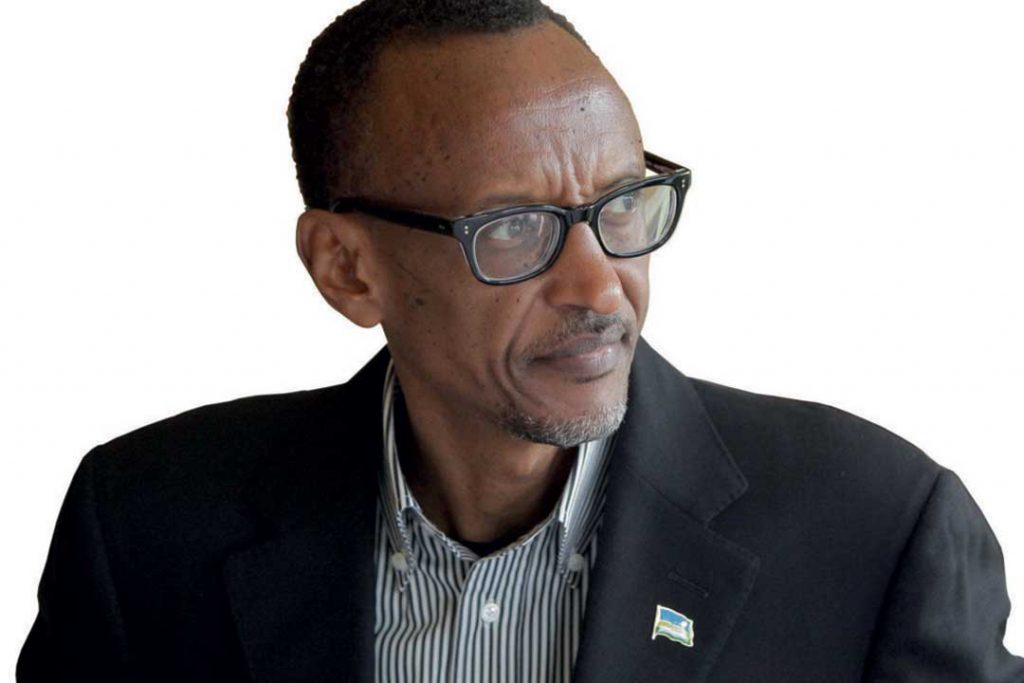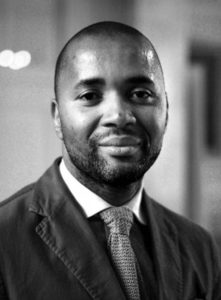
Even the most promising of Africa’s leaders cannot seem to resist the temptation to extend presidential terms
Rwanda, widely regarded as an African developmental success story, has recently attracted attention as it prepares for its presidential election on 4 August. Many observers see the election as a subversion of democracy in a constitutional state, rather than the confirmation of it, as had been hoped for, given the country’s traumatic past.
The election will probably confirm the front-runner, sitting President Paul Kagame, in office. Kagame has held the position for 17 years, and his candidature is possible only because a 2015 amendment has altered the country’s constitutional two-term limit on presidential incumbency. The amendment would allow him to run for another seven-year term, after which a new regime of two five-year presidential terms will be introduced. President Kagame would be eligible to serve these terms as well, meaning that he could remain in office until 2034. Since the 1990s, multi-party elections have become a key feature of governance on the continent. In 2017 alone, some 13 countries will conduct national elections. But this apparent turn towards democracy and constitutional governance masks an often shallow commitment to these ideals. The drive by some of the continent’s leaders to hold on to power is painfully evident.
Outright seizures of power, as in military coups, are now unacceptable. Constitutional amendments to alter term limits have provided avenues to stay in office. But constitutional amendments or wholesale constitutional changes to alter term limits have provided avenues to stay in office. The rules are being changed, though not (technically) violated.
Namibia, for example, was an early adopter of presidential term limits, with a maximum of two five-year terms. But soon after President Sam Nujoma began his second term in 1995, there was a move to extend his tenure. The ruling party pushed through a constitutional amendment, against vociferous objections, that allowed Nujoma to serve a third term until 2000.
In Zambia, in 2001, President Frederick Chiluba tried to amend the constitution to enable a third term for himself, but civil society mobilised to prevent it. In the early 2000s in Uganda President Yoweri Museveni, also in his second term, introduced a constitutional amendment scrapping the limit on two five-year terms set by the country’s 1995 constitution.
The amendment was included in a suite of constitutional amendments that included the reintroduction of multi-partyism, which muddied the debate somewhat, and Uganda’s legislature enabled Museveni to remain in office. Currently, moves are afoot to remove the age limit for Uganda’s presidency, thereby in theory clearing the way for an indefinite tenure.
More recently, in August 2015, Burundian President Pierre Nkurunziza took office for a third term, defying the country’s two-term limit. His supporters argued that his first term was conferred by the legislature, rather than by the electorate, and so should not count towards the constitutional restriction. Many in Burundi and abroad found this unconvincing. Widespread protests accompanied the electoral cycle, while an attempted coup and a savage crackdown left dozens dead and fears of worse to come.
Presidential term limits are currently being debated, or are under attack, in a number of other countries – among them Burkina Faso, Cameroon, Congo, Malawi, Senegal and Zimbabwe.
Critics say that the rash of constitutional amendments extending presidential terms undermines Africa’s embrace of “democracy”, which is about more than simply legitimating governments through elections. A new understanding of the control and use of state power is needed, they say, if the continent is to break with its authoritarian past, and in so doing perhaps drive development. As part of this, African countries have recognised the importance of limiting leaders’ discretion, demanding accountability, building durable institutions and replacing personalised rule with the rule of law.
They also say that the amendments risk turning constitutions into malleable sets of guidelines, rather than solemn governance principles, so violating an implicit compact between citizens and their rulers. In some cases, the revisions have contradicted more explicit presidential standpoints. At one time Kagame pledged to stand down after his term ended, and Museveni famously criticised African leaders who declined to leave office.
The trend represents a worrying precedent for the future, say critics. Anneke van Woudenberg and Ida Sawyer of Human Rights Watch, for example, describe it as ‘the constitutional coup’. The removal of term limits resurrects ghosts from Africa’s past. Historically, Africa’s governance malaise has centred on the personality cults and personal power networks that have developed around long-serving leaders.
Presidents-for-life – as with Malawi’s Hastings Banda, Tunisia’s Habib Bourguiba and Uganda’s Idi Amin – or long-serving “fathers of the nation”– such as Tanzania’s Julius Nyerere and Zambia’s Kenneth Kaunda – are increasingly rare. But governance risks may arise where elected leaders are allowed to remain in office for decades.
Most importantly, personalised power retards the development and evolution of institutions. Countries that draw their stability from the omnipresence of a particular leader, so the argument goes, do not nurture resilient institutions. The long-run impact is a decay in the quality of governance, with the accompanying rise in corruption and repression of dissent.
Extending presidential terms allows a personality to dominate the political landscape, and allows corruption, says Father Peter Henriot, a former director of the Centre for Theological Reflection in Lusaka who was involved in the mobilisation that prevented President Chiluba’s bid for a third term in Zambia. “A spirit can grow that the country really does not have many competent leaders, [so] we must hang on to the one we have.”
Defenders of changes to presidential term limits see things differently. They argue that they may be necessary, given prevailing circumstances. A country may need to retain a proven leader, they say.
In some cases, proponents of changes to term limits present them as a democratic response to popular demands, or as a necessary measure to safeguard an emerging democracy. In 2015, Museveni, for example, claimed that Uganda – that is, the country as a whole – had rejected term limits. “What is happening is [the] people’s choice. Ask people why they want it,” Kagame said in the same year, in response to criticism of his extended stay in office.
Nearly four million Rwandans signed a 2015 petition endorsing further terms for President Kagame, so there is some logic to this. However, African public opinion appears to be strongly in favour of term limits. Data collected by Afrobarometer between 2011 and 2013 in 29 countries with presidential or semi-presidential systems found that around 75% of their citizens supported term limits.
In Uganda, this study found that 85% of respondents favoured term limits – despite Museveni’s assertion that the country had “rejected” them. Civic mobilisation against term extensions, as in Zambia, serves to confirm that African citizens are strongly in favour of term limits.
Across the continent, voices have called for term limits to be respected. University of Malawi academic, Dr Boniface Dulani, argues that term limits are necessary if quality governance is to be assured in Africa. “These rules have helped to transform the African presidency in very important ways,” he notes. “By providing proof that other individuals in society possess leadership abilities, leadership alternations resulting from tenure limits are helping to undermine the justifications for personal rule, which were built on the premise that only certain individuals were imbued with leadership qualities.”

Dr Alfredo Tjiurimo Hengari of the South African Institute of International Affairs, has argued that conflicts generated by term extensions are a contributor to violent instability, as shown by recent events in Burundi and the attempted coup in Burkina Faso in 2015. He has urged the African Union (AU), and Africa’s emerging powers, to take up the question as a matter of continent-wide policy.
But the AU has tended to regard term limit debates as internal matters. Moreover, the challenge involved in achieving consensus on the matter at the continental body renders action highly unlikely. The Economic Community of West African States discussed a proposal for two-term limits in 2015, but the matter was dropped, reportedly after resistance from Togo and The Gambia – both states whose leaders had exceeded their constitutionally mandated time in office.
Criticism of African leaders for extending their time in office resurrects another ghost: the sense that Africa is being singled out unfairly for condemnation, a continent permanently on probation. Long-serving leaders are not a uniquely African phenomenon, the argument goes: Singapore’s iconic independence leader Lee Kwan Yew served as his country’s prime minister for 25 years, having presided over a remarkable transition to a wealthy, highly- developed country.
But the fact that so many presidents are seeking extensions to their term in office shows that the “culture of personal rule refuses to die”, says Dulani. The fate of such attempts has differed from country to country, demonstrating the importance of the national context, he adds. In some countries, civil society has actively opposed term extensions. In others institutions other than the presidency have proved resilient.
Seen from this perspective, imposing term limits is no cure-all. The debate around term limits must be understood as a part of the drive for democracy and constitutionalism on the continent.
A limit to presidential tenure is not a goal in itself, but is part of a larger understanding of what counts as good and accountable governance.
“Ensuring alternation of power is not about presidential term limits alone. It is about the safeguards put in place to protect the constitution. The focus in Africa – be it by activists, political parties or foreign donors – has been disproportionately on limiting presidential terms.
This has been done at the expense of efforts to strengthen safeguards including the courts, the parliaments and so on,” Faten Aggad-Clerx, an Africa analyst and strategic advisor to the Maendeleo Group, a consultancy based in Cape Town, told Africa in Fact.
There would be less concern about term limits if other institutions in society were effective, she suggests. Properly functioning institutions would “structurally ensure” that the principles laid out in most African constitutions were respected.

Terence Corrigan is an independent researcher, political consultant, writer, editor and illustrator. He is currently a research fellow at the South African Institute of International Affairs (SAIIA) in its Governance and African Peer Review Mechanism Programme and a policy fellow at the Institute of Race Relations (IRR).



